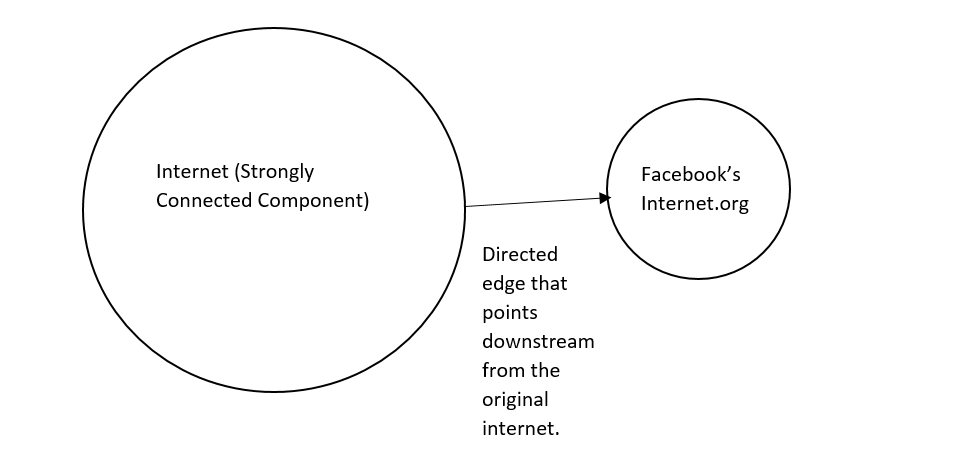The Internet Downstream
As technology progresses, there is more of a demand for the internet to become a natural right of the people. It is felt that everyone on Earth should have access to the internet and the vast amounts of data it contains. As the internet is extremely helpful towards finding answers of many daily problems, this will be very beneficial for everyone living on this planet. With internet access all around, anyone, anywhere, can gain the same amount of knowledge instantly from other people who has experienced it before. For example, a poverty stricken area of India might not know how to educate their children on English. Given the variety of internet sites dedicated to educating children, the parents can easily allow the children to learn by themselves, and in doing so help benefit both the children and themselves. The children will learn valuable knowledge while the parents no longer have to dedicate time that can be spent elsewhere such as making more money for the family. Because of this progression, there has been increasing demand for internet access to be given to impoverished or otherwise disconnected areas such as the rural villages of Africa or the frozen plains of Siberia. Given a computer that can access the internet, anyone in those places can have the same amount of knowledge as anyone else in say, the United States. Many problems can be easily solved by simply gaining access to the internet.
One example of such a project is Facebook’s Internet.org. Facebook seeks to partner with network providers to provide a cheap version of the internet to those in need in developing or poor areas. In principle, this is an excellent idea because then everyone will be able to access the internet. However, the controversy arose when Facebook was found to only offer limited portions of the internet due to cost limitations. The content offered are effectively “approved” by Facebook before they are allowed to be used by those in poor areas. Tim Berners Lee, who is widely respected as the father of the internet, strongly opposes this idea. He thinks that it violates the basic freedom of the internet where the user can go where they want and get what information they want. If Facebook wants to limit the access of users on their Internet.org, then they are not really providing the real internet to the poor citizens. They are simply using Internet.org as an excuse to rope in the users to the content or services that solely Facebook will offer. One term for this is called Net Neutrality. This is where the provider of the internet service controls what the users are able to see. Considering the facts, Facebook essentially the network service provider for the poor areas and can effectively limit the users of Internet.org to its own walled garden or proprietary services. Given that a typical poor person does not have access to the full web, but only Facebook’s Internet.org, this violates every aspect of the founding principle of the free internet and thus causing a huge uproar regarding this issue.
We talked in class about how the internet can be represented as a graph with websites being nodes and links to them being edges. By this definition, the entirety of the ideal internet graph can be represented as 1 strongly connected component as no matter where the user is in the graph, the user can get to any other website simply through links. In this particular case, Internet.org seeks to create another strongly connected component that is downstream from the real internet with only limited access. People such as us can access it from our strongly connected component of the internet easily as we can go anywhere we please from the strongly connected component of the internet. However, those who are only on the existing Internet.org such as the people in rural areas cannot navigate outwards to the greater strongly connected component of the internet. They will only get a portion of Facebook curated information and services with no way to get to the actual internet. The directed graph point towards to Internet.org. This makes Internet.org downstream from the internet. As talked about in class, by definition, the directed graph means there is no way for the user of Internet.org to navigate back up to the internet’s strongly connected component. This is exactly what Tim Berners Lee is strongly against as he wants the internet to be one giant strongly connected component where everything is public and accessible. This is what his intent was when he created it. If Facebook releases Internet.org, it is not really the real internet as there is no way to access the majority of the services on the main part of the internet easily. Facebook’s severe limitations really hinder what can actually be accessed.
The Inventor Of World Wide Web Says ‘Just Say No’ To Internet.org

